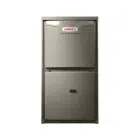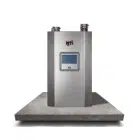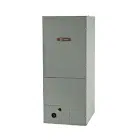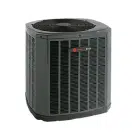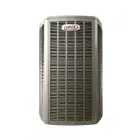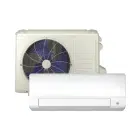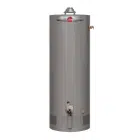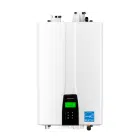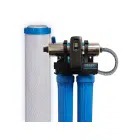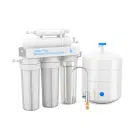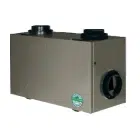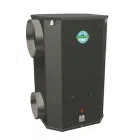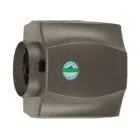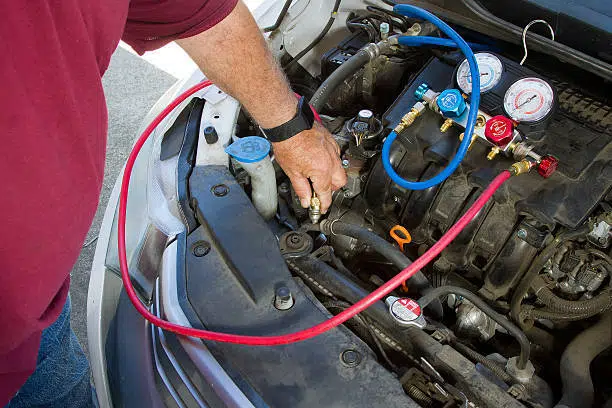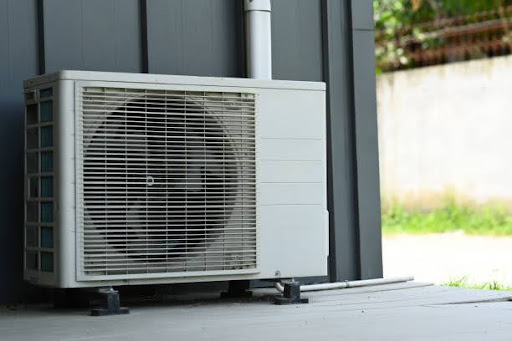
Table of Contents
Ever wondered what keeps your air conditioner running smoothly during those sweltering summer days? Meet the AC condenser unit – the unsung hero of your cooling system. This crucial component is like the diligent backstage crew that ensures everything performs perfectly while you enjoy a cool and comfortable indoor environment.
What is an AC Condenser?
The air conditioner condenser is the outdoor unit of your air conditioning system and plays a critical role in keeping your home cool. If you’ve ever noticed a large metal box outside your house with vents and a fan, that’s the condenser unit. Its primary function is to release the heat absorbed from inside your home to the outside environment.
Here’s a more detailed look at what the condenser does:
- Heat Rejection: Inside your home, your air conditioner absorbs heat from the indoor air, transferring it to the refrigerant. The air conditioner condenser’s job is to handle this hot refrigerant. It cools it down by expelling the absorbed heat into the outside air. This process is crucial for maintaining a comfortable temperature indoors.
- Component Structure: The AC condenser unit is made up of several key components: the compressor, condenser coil, and the fan. The compressor pressurizes the refrigerant, which then moves through the condenser coil. The fan helps to blow air across these coils, facilitating the heat transfer process.
- Efficiency and Maintenance: Proper functioning of the condenser is essential for the efficiency of your air conditioning system. A well-maintained air conditioner condenser helps the system run efficiently, while a neglected one can lead to decreased performance and increased energy costs.
In essence, the AC condenser acts as the “heat exchanger” of your cooling system. It’s a robust, outdoor component that ensures the heat absorbed from your home is effectively released, allowing your air conditioner to keep your indoor environment cool and pleasant.
How Does an AC Condenser Work?
Understanding the workings of an air conditioner condenser can shed light on how your air conditioning system keeps your home cool. Let’s break down the process step-by-step:
- Compression: It all starts with the compressor, which is part of the AC condenser unit. Inside the compressor, the refrigerant gas, which has picked up heat from your indoor air, is compressed. This compression process significantly increases the temperature and pressure of the refrigerant, transforming it into a hot, high-pressure gas. Think of it as squeezing a sponge filled with water – the more you squeeze, the more pressure builds up.
- Heat Release: This hot, high-pressure gas then travels through the condenser coil. These coils are essentially a network of metal tubing that allows heat to be transferred efficiently. As the refrigerant flows through these coils, a fan mounted in the condenser unit blows air across them. This airflow helps cool the hot gas down rapidly. As the gas loses heat to the outside air, it condenses into a high-pressure liquid. It’s similar to how steam condenses into water when it cools down.
- Cooling Your Home: The cooled liquid refrigerant then exits the condenser unit and travels back inside your home to the evaporator coils. Here, the refrigerant absorbs more heat from your indoor air, causing it to evaporate and turn back into a gas. This process of heat absorption and evaporation continues as the refrigerant circulates through the system. It’s like a continuous cycle of cooling and reheating, ensuring that your indoor air remains comfortably cool.
This cycle ensures that the heat extracted from inside your home is effectively expelled outside, allowing your air conditioner to maintain a pleasant indoor temperature.
Why is it Important?
The condenser is vital for your air conditioning system to function properly. Without it, the refrigerant wouldn’t be able to release the heat it’s picked up from inside your home. This would leave your air conditioner struggling to cool your space effectively, similar to how a fan would fail to cool you down if it couldn’t expel hot air. A well-maintained air conditioner condenser ensures efficient performance and prevents your energy bills from climbing due to decreased system efficiency.
Find out how to fix the most common air conditioner repair problems by yourself in our previous article via the link below.
https://thehvacservice.ca/how-to-fix-the-most-common-air-conditioning-problems-by-yourself/
How to Understand That My AC Condenser Is Broken?
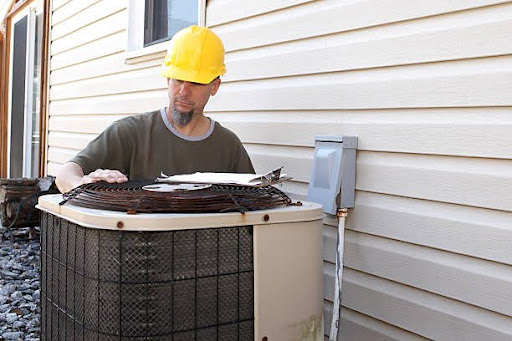
Not sure if your AC condenser is on the fritz? Here are some telltale signs that your outdoor unit might be having trouble, and what to look for:
- Cooling Problems: If your home isn’t cooling down as it should or you’re noticing hot spots around the house, your condenser might be at fault. A struggling condenser can’t efficiently release the heat it pulls from inside, which means your AC’s cooling performance will take a hit.
- Strange Noises: Is your AC condenser making weird sounds like clanking, grinding, or buzzing? These noises can be more than just annoying – they often signal mechanical issues. It could be a failing fan motor, loose parts, or something wrong with the compressor.
- Frequent On-Off Cycling: If your air conditioner seems to be turning on and off constantly in short bursts, it might be a sign that the condenser is having issues. This could be due to the condenser struggling to manage the refrigerant, leading the system to overheat and cycle on and off.
- Unexpected Water Leakage: Seeing puddles or excessive water around your condenser unit? While a bit of condensation is normal, a lot of water or visible refrigerant leaks are red flags. This could mean there’s a leak or a problem with one of the condenser’s components.
- Warm Air Blowing: If your air conditioner is blowing warm air instead of the cool breeze you’re expecting, the condenser could be the culprit. If the condenser isn’t doing its job right, it won’t be able to release the heat properly, and your indoor air won’t stay as cool as it should.
- Spike in Energy Bills: Have you noticed a sudden rise in your energy bills without changing how much you use your AC? If your condenser is struggling, your system will work harder to cool your home, leading to increased energy consumption and higher bills.
- Visible Damage: Take a look at your condenser unit. Bent coils, rust spots, or a buildup of debris could be signs that something’s wrong. Physical damage can affect how well the unit works and its overall efficiency.
If you spot any of these signs, it’s a good idea to call in a professional. At HVAC Service Solutions, we’re here to help diagnose and fix any issues with your AC condenser. Early intervention can save you from more significant problems down the road and keep your home comfortable.
How to Prevent Your AC Condenser from Breaking
Taking care of your AC condenser can save you from unexpected breakdowns and costly repairs. Here’s how to keep your unit running smoothly and extend its life:
- Schedule Regular Maintenance: Think of regular air conditioner maintenance as a check-up for your condenser. Aim to have a professional inspect and service your unit at least once a year, preferably before the summer heat kicks in. A technician will clean the coils, check for leaks, and make sure everything’s working as it should. This proactive approach helps catch any issues early and keeps your system in top shape.
- Keep the Area Around the Condenser Clear: Your condenser needs plenty of airflow to work efficiently. Make sure there’s nothing obstructing it—no leaves, branches, or debris. Trim back any plants and regularly clean around the unit. This simple step can make a big difference in maintaining good airflow and preventing overheating.
- Clean the Coils: Over time, dust and dirt can accumulate on the condenser coils, making it harder for them to release heat. While you can do some basic cleaning, it’s a good idea to have a professional handle the more thorough coil cleaning. Clean coils mean better heat transfer and a more efficient cooling system.
- Check the Fan: The fan in your condenser unit plays a crucial role in cooling the refrigerant. Regularly check the fan blades to ensure they’re in good condition and that the fan is operating smoothly. If you hear any strange noises or notice that the fan isn’t working correctly, it’s time to call in a pro.
- Monitor Refrigerant Levels: The right amount of refrigerant is essential for proper cooling. Low refrigerant could signal a leak or other issues. Have a technician check the refrigerant levels and refill them if necessary. Addressing leaks and keeping the refrigerant at the right level will help prevent damage to your system.
- Inspect for Visible Damage: Take a look at your condenser unit from time to time. Look for any signs of physical damage, such as bent coils or rust. Spotting and addressing these issues early can prevent minor problems from becoming major headaches.
- Ensure Proper Installation: If you’re installing a new condenser or making changes to your setup, make sure it’s done right. An improperly installed unit can lead to performance problems and early wear. Have a qualified professional handle the installation to ensure everything is set up correctly.
By following these tips, you can help your AC condenser run efficiently and avoid unexpected problems.
Conclusion
If you’ve noticed that your air conditioner isn’t keeping your home as cool as it used to, it might be time to give your AC condenser unit some attention. At HVAC Service Solutions, we specialize in inspecting, repairing, and maintaining air conditioner condensers to keep your system running smoothly. Our expert team is here to help you stay comfortable no matter how high the temperature rises. Don’t hesitate to give us a call today to schedule a service or to learn more about how we can assist with all your HVAC needs. Staying cool is just a call away!
Frequent Asked Questions
What is the purpose of an AC condenser?
The AC condenser is essential for removing heat from the refrigerant that absorbs heat from inside your home. Its main purpose is to release this absorbed heat into the outside air, allowing the refrigerant to cool down and convert from a gas to a liquid. This process is crucial for maintaining the efficiency of your air conditioning system. Without the condenser, your AC wouldn’t be able to effectively expel the heat it removes from your indoor space, leading to decreased cooling performance and potential system failure.
Where is the AC condenser located?
The AC condenser is typically located outside your home. It’s a large, metal unit often placed on a concrete slab or platform to provide stability and proper drainage. The location is chosen to ensure effective heat dissipation. Ideally, it should be installed in a shaded area to enhance its efficiency, though it must still have adequate airflow around it. Avoid placing it near any obstructions that could restrict airflow, such as shrubs or fences.
How does the AC condenser work with the rest of the air conditioning system?
The AC condenser works in tandem with the other components of your air conditioning system, such as the evaporator coils and the compressor. Inside the AC unit, the refrigerant absorbs heat from your indoor air and is then pumped outside to the condenser. Here, the refrigerant gas is compressed, cooled, and condensed into a liquid. This cooled liquid refrigerant then returns to the evaporator coils inside the house to absorb more heat, continuing the cooling cycle. The process ensures that your indoor air remains cool and comfortable.
What are common signs that my AC condenser is malfunctioning?
Common signs of a malfunctioning AC condenser include reduced cooling performance, unusual noises such as clanking or buzzing, and a noticeable increase in energy bills. You might also notice that the outdoor unit is not running or that the condenser coils are iced over. If your air conditioner is blowing warm air or if there’s water leakage around the condenser, these could also be indicators of a problem. Regular maintenance and prompt repairs can help address these issues before they escalate.
How often should I have my AC condenser serviced?
It’s recommended to have your AC condenser serviced at least once a year, ideally before the start of the cooling season. Regular maintenance helps ensure that the unit operates efficiently and can prevent unexpected breakdowns. During a service visit, a technician will clean the condenser coils, check refrigerant levels, inspect the compressor, and ensure that all components are functioning correctly. This proactive approach can extend the life of your condenser and improve overall system performance.
Can I clean the AC condenser myself?
While you can perform some basic cleaning of the AC condenser yourself, such as removing debris and dirt from around the unit, it’s advisable to leave more detailed cleaning and maintenance to a professional. Cleaning the condenser coils and checking refrigerant levels require specialized tools and knowledge to avoid damaging the unit or affecting its performance. Regularly clearing leaves, grass, and other debris from around the condenser can help maintain its efficiency and prevent clogging.
Why is my AC condenser making strange noises?
Strange noises from the AC condenser, such as clanking, buzzing, or rattling, can indicate several potential issues. Common causes include loose or damaged parts, a failing fan motor, or debris caught in the condenser coils. It’s also possible that the compressor is malfunctioning. If you hear unusual sounds, it’s best to have a professional technician inspect the unit to diagnose and address the problem. Ignoring these noises can lead to more severe damage and costly repairs.
How can I improve the efficiency of my AC condenser?
To improve the efficiency of your AC condenser, ensure that it is kept clean and free from debris. Regularly trim back any vegetation around the unit to allow for proper airflow. Ensure that the unit is level and that there are no obstructions blocking the vents. Additionally, schedule annual professional maintenance to keep the condenser in optimal working condition. Proper insulation of the refrigerant lines and maintaining clean air filters in your indoor unit also contribute to overall efficiency.
What is the lifespan of an AC condenser?
The average lifespan of an AC condenser is typically between 10 to 15 years, though this can vary based on factors such as usage, maintenance, and environmental conditions. Regular maintenance can help extend the life of your condenser by preventing issues and ensuring that it operates efficiently. If your condenser is approaching or exceeding this lifespan and experiencing frequent problems, it might be time to consider a replacement. Newer models often come with improved energy efficiency and advanced features.
How much does it cost to repair or replace an AC condenser?
The cost of repairing or replacing an AC condenser can vary widely depending on the extent of the damage, the type of unit, and labor costs in your area. Minor repairs, such as fixing leaks or replacing a fan motor, can cost a few hundred dollars. Major repairs or replacements might range from $1,500 to $4,000 or more. It’s advisable to get quotes from several professionals and weigh the cost of repair against the cost of a new unit. Investing in a new, energy-efficient condenser can often lead to savings on your utility bills in the long run.
Share

